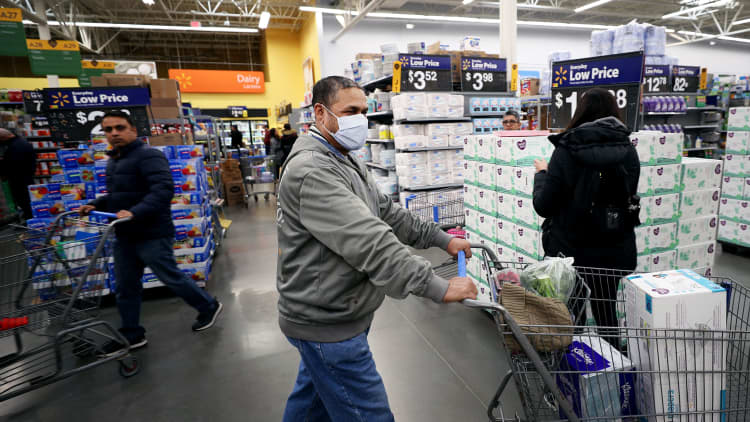San Francisco's coronavirus response has been far from perfect.
But with just over 7,000 cases and 64 deaths, in a population of over 800,000, it's better off than most U.S. cities, experts say.
At this stage, the city remains on the state's watchlist— although things have recently been frozen for the past few days because of a data glitch — and schools will open later this month with 100% remote learning.
But hospitals were never overwhelmed. That allowed the University of California, San Francisco to send medical volunteers to other parts of the country that have been harder hit by the virus.
The city's health experts say that there are lessons to be drawn from San Francisco's response. Dr. Bob Wachter, chairman of the department of medicine at UC San Francisco, has recently highlighted in a series of tweet storms how the city has one of the lowest rates of cases per 100,000, compared to other large U.S. cities. The first months of the response in March and April were particularly impressive, he notes, although things took a turn for the worse in the early summer months.
Wachter created the following chart, which shows that as of July 31, San Francisco had the third-lowest case rate and lowest death rate of the 20 largest cities.
In an interview, he shared some of the major factors that might explain why case counts remain relatively low compared to other parts of the country and state. Overall, California has seen more than 540,000 cases and more than 10,000 deaths.
The early shift to remote work
Many of the city's largest companies took an early leap in recommending that their workers remain at home, rather than commuting into the office. Of course, it's worth noting that many of these companies are in the business of software, so remote work is a far easier proposition. Twitter, Google, and other tech companies with big offices in San Francisco all asked employees to stay home back in early March.
"Corporate leaders in the Bay Area were early to recognizing that this was going to be a big deal," said Dr. Wachter. "I remember it hitting me how serious it was when Google told everyone to stay home, and I figured they must know something."
Wearing masks
California is one of the states that requires people to wear masks. Moreover, polls and surveys have consistently found that Californians are actually following the rule more than residents of most other states.
The one exception to the rule, in San Francisco at least, seems to be the parks where city officials have drawn circles in chalk to establish social distancing. But for the most part, people do wear masks while on walks and in grocery stores. City health officials have also been consistent in recommending masks and cloth coverings.
"There's also social pressure here in San Francisco," explained Wachter. "In San Francisco, if you go to a gathering with one person having a mask off, it's likely that person would be looked at funny and their friends might even say something."
Politicians listening to scientists
It hasn't been easy to be a health official in America since the outset of the pandemic. In the Bay Area, public health experts have reported harassment from residents that took issue with the guidelines.
But they still took early stands based on science and stuck to them consistently.
San Francisco Mayor London Breed declared a state of emergency in late February, before the city had confirmed a single case of the coronavirus. She was also very early to ban gatherings of more than 1,000 people.
"In retrospect, it was gutsy as hell," said Wachter. "Our local politicians have demonstrated they have the courage to do it, and the city's citizens have demonstrated in return that they will take the time to understand what's going on and they'll accept it."
Looking ahead
In mid-July San Francisco Health Director Dr. Grant Colfax issued some concerning predictions about where the city could be going. He recently estimated a worst case scenario where the city could see a peak of 6,000 patients hospitalized by early to mid-October.
Wachter feels cautiously optimistic but recognizes that it's hard to know what the future may hold. People are getting fatigued by the shutdowns and may be looking for reasons to avoid the public health guidelines. But he also says some of the recent small surges were to be expected as the city starts to allow some stores to reopen and restaurants to serve customers outdoors.
"You can't be on strict lockdown for two years so we must accept some cases, but we're ready for it," he said.
He also notes that hospitals have had a bit of time to prepare, so it's better to see a modest uptick now than in March. Back then, there were widespread shortages of personal protective equipment for health care workers.
Overall, he feels relatively confident that San Francisco residents will continue to do the right thing. Despite mounting pandemic fatigue, there's still widespread acceptance of wearing masks and in social distancing compared to other parts of the country.
"From what I've seen so far, I expect that we'll be able to manage alright and get things under control," he said.



